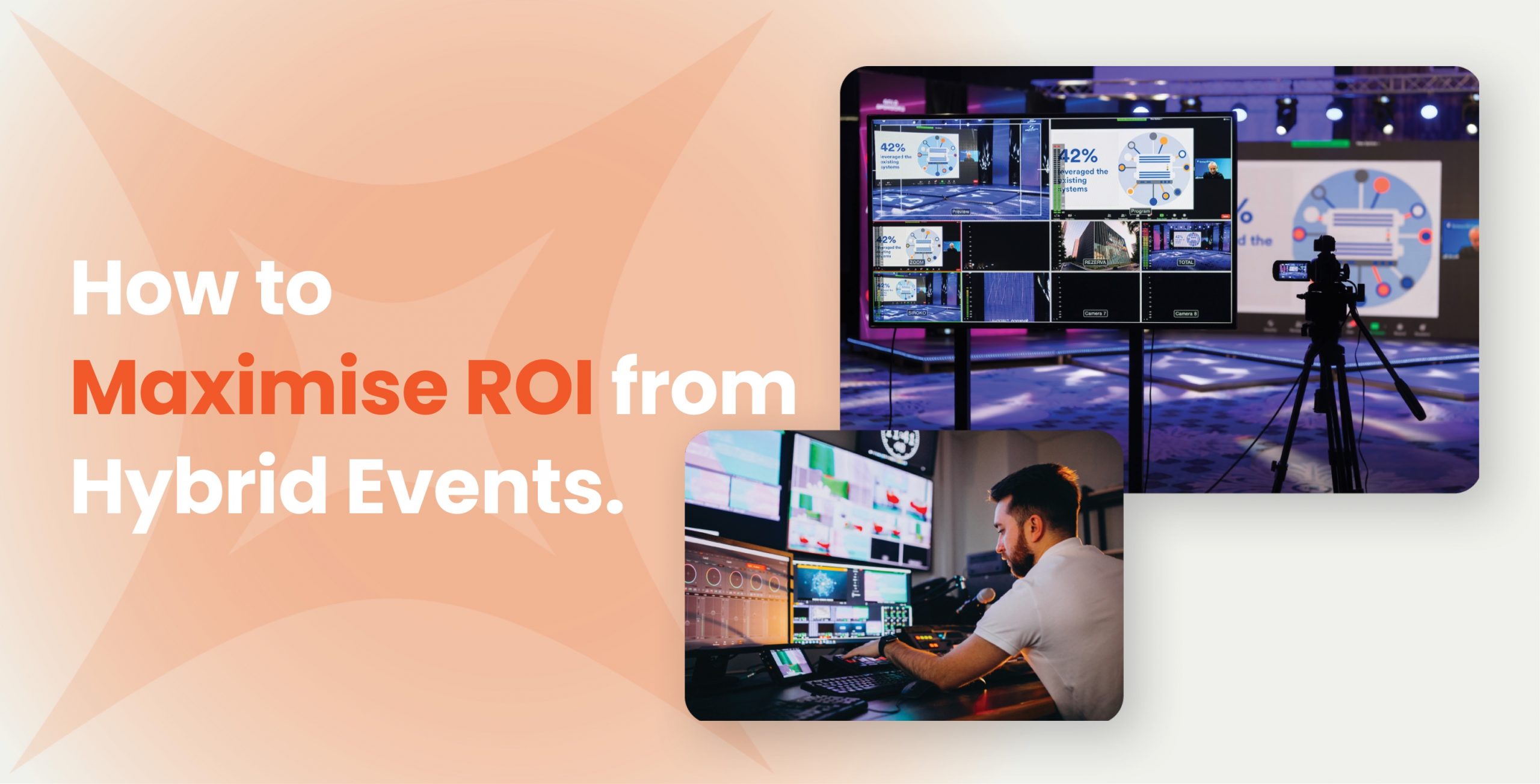
The rise of virtual events during the Covid-19 era, and the accompanying leap forward in virtual event technology, was nothing short of stratospheric. Never had a single event had such far-reaching impact or catalysed such a widespread growth and development in the industry. As time moved on and the world slowly opened up, hybrid events emerged as a powerful tool for event organisers, blending the best of in-person and virtual experiences.
But now several years on, live events continue to make a strong comeback post-pandemic, which has the seen the role of hybrid events evolve once more. While the need for the non-traditional event formats may be less urgent, if managed effectively they can still offer unique advantages that can significantly enhance return on investment (ROI). To fully leverage the potential of hybrid events, it’s crucial to understand and implement strategies
that cater to both physical and virtual audiences effectively.
Expanding Audience Outreach
One of the primary benefits of hybrid events is their ability to expand audience reach. Unlike traditional events that are confined to a specific location, hybrid events break geographical barriers, allowing participants from around the globe to engage. This expanded reach not only increases visibility but also introduces your event to new demographics and markets, potentially increasing ticket sales and sponsorship opportunities.
For instance, consider tailoring your marketing efforts to target different time zones and cultural preferences. By doing so, you can capture a more diverse audience, which can lead to higher engagement and better ROI. Additionally, offering content in multiple languages or providing live translations can further enhance accessibility and attract international attendees.
Diversified Revenue Streams
Hybrid events open up new avenues for revenue generation. While traditional events rely heavily on ticket sales and sponsorships, hybrid events offer additional revenue streams through virtual attendance fees, on-demand content, and digital sponsorship packages.
For example, you can monetise recorded sessions by offering them as premium content post-event. This not only extends the life of your event but also provides an additional revenue source. Furthermore, digital sponsorships, such as branded virtual backgrounds, sponsored sessions, and online advertisements, can be integrated into the virtual component of your event, providing sponsors with more value and increasing your overall revenue.
Accessibility and Inclusivity
Hybrid events are inherently more inclusive, offering greater accessibility to participants who might otherwise be unable to attend due to physical, financial, or logistical constraints. This inclusivity is not only socially responsible but also beneficial from an ROI perspective.
By providing an option to attend virtually, you can cater to a broader audience, including those with disabilities, financial limitations, or geographical restrictions. This increased accessibility can lead to higher attendance numbers, greater engagement, and ultimately, a better ROI.
Sustainability
Sustainability has become a critical consideration for event organisers, and hybrid events align perfectly with this growing trend. By reducing the need for travel and physical infrastructure, hybrid events can significantly lower the carbon footprint associated with large gatherings.
For example, virtual components reduce the need for printed materials, transportation, and large venues, all of which contribute to environmental conservation. Not only does this appeal to environmentally conscious attendees, but it can also attract sponsors who prioritise sustainability, further boosting your event’s revenue potential.
Creativity in Event Format
Hybrid events offer unparalleled flexibility in how content is delivered, allowing for creative and engaging formats that cater to different learning styles and preferences. Instead of merely replicating the live experience online, event organisers can create unique virtual experiences that complement the in-person event.
Consider incorporating shorter, focused sessions with an online MC to guide virtual attendees through the event. This can help maintain engagement and reduce fatigue, a common issue with online events. Additionally, interactive elements such as polls, Q&A sessions, and gamification can enhance the virtual experience, making it more engaging and memorable.
Extending the Life of Your Event
One of the most significant advantages of hybrid events is their ability to extend the life of your event through on-demand content. Recorded sessions, presentations, and discussions can be repurposed and made available to attendees long after the event has concluded.
This not only provides additional value to attendees but also creates opportunities for ongoing engagement and revenue generation. For instance, offering exclusive access to recorded content as part of a premium membership or subscription service can provide a steady income stream into the future.
So, What Are the Best Practices for Maximising ROI from Hybrid Events ?
Engage Your Audience Early and Often. Engagement should begin long before the event
starts. Use targeted marketing campaigns to build anticipation and encourage early registrations. During the event, keep both in-person and virtual attendees engaged with interactive sessions, live Q&A, and real-time polls.
Leverage Data and Analytics: Hybrid events generate a wealth of data, from attendee
demographics to engagement metrics. Use this data to gain insights into attendee behaviour, preferences, and pain points. This information can help you refine your event strategy, tailor content, and improve future events, ultimately leading to a higher ROI.
Optimise the User Experience: The user experience is critical to the success of a hybrid event. Ensure that both in-person and virtual components are seamless, intuitive, and user- friendly. Invest in a reliable technology partner offering a robust event platform and high-quality streaming services, to minimise technical issues and provide a smooth experience for all attendees.
Offer Flexible Pricing Models: When pricing your hybrid event, consider the value of both the in person and virtual experiences. Offer tiered pricing options that reflect the different levels of access and content provided. For example, a premium package could include in-person attendance, access to exclusive sessions, and post-event content, while a basic package might offer virtual access only.
Promote On-Demand Content: Extend the value of your event by promoting on-demand content to those who were unable to attend live. This not only increases your reach but also provides an additional revenue stream. Use email marketing, social media, and targeted advertising to promote your on-demand offerings and drive traffic to your event platform.
Foster a Sense of Community: Hybrid events can sometimes feel disconnected, particularly for virtual attendees. To bridge this gap, create opportunities for networking and interaction across both in person and virtual audiences. This could include virtual networking lounges, live chat features, and social media groups where attendees can connect before, during, and after the event
To Sum It Up
Hybrid events represent a significant opportunity for event organisers to maximise ROI while delivering a more inclusive, engaging, and sustainable experience. By strategically combining the strengths of both in-person and virtual formats, organisers can reach a broader audience, generate diversified revenue streams, and create lasting value for attendees and sponsors alike.
The key to success lies in understanding the unique dynamics of hybrid events and implementing best practices that cater to the needs of both physical and virtual participants. Whether it’s through creative content delivery, data-driven decision-making, or extending the life of your event through on-demand content, the potential for ROI in hybrid
events is unlimited!









